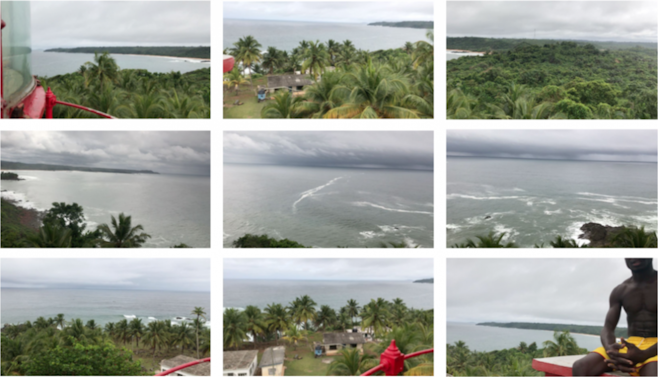Black Atlantic Museum
The Black Atlantic Museum is a digital research project based on archival research and interviews. It seeks to examine the references and influences in contemporary art in the UK since the 1990s of sociologist Paul Gilroy’s thesis developed in his seminal work The Black Atlantic (1993).
The Black Atlantic Museum is a digital research project based on archival research and interviews. It seeks to examine the references and influences in contemporary art in the UK since the 1990s of sociologist Paul Gilroy’s thesis developed in his seminal work The Black Atlantic (1993). The latter posits the centrality of the slave trade in the formation of Modernity, shaped by the circulation of human and economic and material goods at sea, and a dialectic between African and Western cultures which, following W.E.B Du Bois, result in a ‘double-consciousness’, and a polyphonic Black cultural expression. These relationships between Gilroy’s ideas – re-contextualised and discussed in relation to recent scholarship in Black Studies around the slave trade and its aftermaths – and contemporary art are explored through a mapping of artworks, exhibitions, cultural movements, and socio-political initiatives that manifest what theorist Saidiya Hartman has termed the ‘afterlives of slavery’. Consisting of a mapping microsite hosted on Afterall’s digital platform Art School, the project aims to identify, visualise and study the intersections between contemporary art, cultures of the Black Atlantic and liberation projects in the UK. In this context, mapping is informed and understood in the sense developed by Black scholars and artists as articulating, following scholar Katherine McKittrick, ‘Black Geographies’, namely ‘space, place, and location in their physical materiality and imaginative configurations,’ that are inhabited by Black communities and overlooked, or enclosed, by prevailing knowledge systems.
The Black Atlantic Museum operates on two levels
- Research into artists’, curators’ and institutional archives mapping project of artists and artworks, exhibitions and events engaging with the history of the Black Atlantic, intersecting them with a mapping of Black British social-political initiatives.
- Commissioning of online essays and hosting of online events with specialists in Black Studies responding to (1) to sketch revisionist accounts of British art history through the prism of the Black Atlantic and its aftermaths. This project aims to renew our understanding of a spectrum of specific artistic and curatorial practices within their wider contemporary and transhistorical contexts.
The Black Atlantic Museum is based at the Afterall Research Centre, Central St Martins, University of the Arts London and supported by a Digital Project Grant from the Paul Mellon Centre for Studies in British Art (2021–22).

Contributors
Principal Investigator: Dr Adeena Mey
Researcher: Adjoa Armah